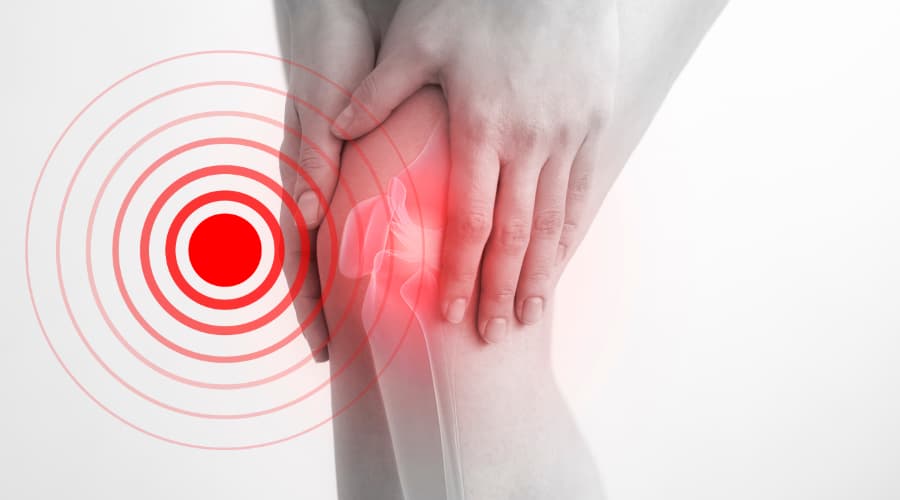Erectile dysfunction (ED) is a prevalent and concerning health issue affecting a significant portion of the male population worldwide. Characterised by the persistent difficulty in achieving or maintaining an erection sufficient for satisfactory sexual performance, ED not only impacts physical intimacy but also influences psychological well-being, self-esteem, and overall quality of life for men. The complexity of ED’s aetiology encompasses various factors, including vascular health, neurological integrity, psychological conditions, and endocrine health.
Endocrine disorders involve the malfunctioning of the glands that release hormones directly into the bloodstream, vital in regulating myriad bodily processes, including metabolism, growth and development, tissue and sexual function. Given hormones’ central role in modulating sexual desire and erectile function, it’s no surprise that endocrine disorders emerge as a significant contributor to the development of ED. These disorders, which include conditions such as diabetes mellitus, thyroid dysfunction, low testosterone levels (hypogonadism), and others, can profoundly influence erectile capabilities through various mechanisms.
Erectile Dysfunction
Erectile dysfunction (ED) is a medical condition characterised by the consistent inability of a man to achieve or maintain an erection firm enough for satisfactory sexual intercourse. This condition, far from being merely a challenge to sexual health, often serves as an indicator of underlying health issues, affecting both physical and psychological well-being. Common symptoms of ED include difficulty getting an erection, trouble keeping an erection, and reduced sexual desire, which can significantly impact a man’s confidence and intimate relationships.
The Physiology of Erection:
The process of achieving and maintaining an erection is a complex interaction of psychological, neural, vascular, and hormonal factors. It begins with sexual arousal, either from direct physical stimulation or erotic thoughts. This arousal triggers the nervous system to increase blood flow to the penis by dilating the arteries. Concurrently, the muscles around the corpora cavernosa (two cylindrical chambers in the penis) relax, allowing the chambers to fill with blood and swell, resulting in an erection. The veins that usually drain blood from the penis are compressed, thereby maintaining the erection by preventing blood from flowing out.
Hormonal Balance in Sexual Health:
Hormones play a pivotal role in regulating sexual function, with testosterone being particularly crucial. This hormone is not only fundamental to the development of male sexual characteristics but also influences libido (sexual desire) and aids in the erectile process by stimulating the production of nitric oxide, a molecule essential for dilating blood vessels in the penis.
An imbalance in hormones, not just testosterone but also others, such as thyroid hormones and prolactin, can disrupt the delicate equilibrium required for sexual health. For instance, low testosterone levels (hypogonadism) can lead to decreased libido and compromise the ability to achieve an erection. Similarly, hyperthyroidism or hypothyroidism can affect sexual function, underscoring the importance of hormonal balance in maintaining sexual health and preventing ED.
The Endocrine System and Its Role in Sexual Health
The endocrine system, a network of glands that produce and release hormones directly into the bloodstream, is a pivotal regulator of numerous bodily functions, including metabolism, growth and development, mood, and sexual health. These hormones act as chemical messengers, orchestrating a harmony of physiological responses across different body systems.
The Endocrine System:
Hormone Production and Regulation:
The endocrine system comprises various glands, including the pituitary, thyroid, adrenal, and gonads (testes in men), each responsible for producing specific hormones. These hormones regulate various bodily functions by interacting with target organs and tissues.
Feedback Mechanisms:
Feedback mechanisms tightly control hormonal release, ensuring that hormone levels within the bloodstream remain balanced. Disruptions in this balance can lead to a range of health issues, including those affecting sexual health.
Hormones and Sexual Function:
Testosterone:
Testosterone, often dubbed the “male” hormone, is produced primarily in the testes and plays a critical role in regulating libido (sexual desire), erectile function, and sperm production. Low levels of testosterone (a condition known as hypogonadism) can lead to reduced sexual desire and difficulties achieving or maintaining an erection.
Thyroid Hormones:
Thyroid hormones, produced by the thyroid gland, influence metabolism, energy levels, and overall mood. Both hyperthyroidism (excessive thyroid hormone production) and hypothyroidism (insufficient thyroid hormone production) can adversely affect sexual function. For example, hyperthyroidism may lead to premature ejaculation, while hypothyroidism can cause low libido and ED.
Prolactin:
Produced by the pituitary gland, prolactin levels that are too high can suppress the secretion of sex hormones, leading to decreased sexual interest and, potentially, erectile dysfunction. Elevated prolactin levels can be indicative of a pituitary gland disorder.
Other Hormones:
Adrenal hormones, such as cortisol and adrenaline, also affect sexual health. Chronic stress, leading to prolonged high levels of cortisol, can negatively impact libido and sexual function.
Hormones, Libido, and Fertility:
Libido:
Hormones significantly influence libido. For example, testosterone is directly linked to sexual desire, with lower levels associated with decreased interest in sexual activity.
Fertility:
Beyond libido and erectile function, hormones like follicle-stimulating hormone (FSH) and luteinising hormone (LH), both regulated by the pituitary gland, are critical for sperm production and overall male fertility.
Endocrine Disorders affecting Erectile Function
Endocrine disorders disrupt the delicate hormonal balance essential for various bodily functions, including sexual health.
Diabetes Mellitus
Diabetes mellitus, particularly type 2, is intricately linked to the development of ED. High blood sugar levels over time can cause vascular damage and neuropathy (nerve damage), both of which are critical factors in the development of ED. Vascular damage compromises the blood flow necessary for achieving an erection, while neuropathy affects the nerves responsible for the signals that initiate and maintain an erection. Additionally, diabetes can lead to hormonal imbalances, further exacerbating ED.
Hypogonadism (Low Testosterone)
Hypogonadism, characterised by low testosterone levels, directly impacts libido, erectile function, and overall sexual health. Testosterone plays a pivotal role in sexual desire and achieving an erection. Low levels can reduce libido, diminish erectile function, and decrease the overall quality of sexual life. Moreover, hypogonadism can influence mood and energy levels, indirectly affecting sexual performance.
Thyroid Disorders
Thyroid hormones regulate metabolism, energy, and mood, all related to sexual health. Both hyperthyroidism (overactive thyroid) and hypothyroidism (underactive thyroid) can have detrimental effects on erectile function and libido. Hyperthyroidism may lead to premature ejaculation or increased libido that doesn’t match erectile capacity, while hypothyroidism can cause low libido, delayed ejaculation, and ED.
Prolactinoma and Other Pituitary Disorders
Prolactinoma, a benign tumour of the pituitary gland that produces excessive prolactin, can significantly impact sexual function. High levels of prolactin suppress the production of testosterone, leading to reduced sexual desire and ED. Other pituitary disorders can also disrupt the balance of sex hormones, affecting sexual health.
Adrenal Gland Disorders
Adrenal gland disorders that result in abnormal cortisol and adrenal hormone levels can influence sexual health. High cortisol levels, often a response to chronic stress, can suppress testosterone production and libido. Conditions such as Cushing’s syndrome (excessive cortisol production) and Addison’s disease (insufficient cortisol production) can both lead to imbalances that impact sexual desire and function.
Diagnosing Erectile Dysfunction Linked to Endocrine Disorders
Identifying the root cause of erectile dysfunction (ED), mainly when linked to endocrine disorders, necessitates a comprehensive and meticulous diagnostic approach. This process involves an array of tests and evaluations aimed at uncovering hormonal imbalances that may be contributing to ED. A detailed medical history and physical examination are foundational to this diagnostic journey, providing crucial insights into potential endocrine-related causes.
Medical History:
Personal Health Record:
A thorough review of the patient’s overall health, focusing on the duration and severity of ED symptoms, existing endocrine disorders (e.g., diabetes, thyroid issues), and family medical history.
Lifestyle Factors:
Evaluation of lifestyle factors that could influence ED, including dietary habits, exercise routines, alcohol consumption, tobacco use, and stress levels.
Medication Review:
A detailed examination of current and past medications, as some drugs can affect hormonal balance and erectile function.
Physical Examination:
General Assessment:
A general physical examination checks for signs of endocrine disorders, such as changes in hair distribution, breast enlargement (gynecomastia), or visual signs of thyroid abnormalities.
Genitourinary Examination:
A focused examination of the genitalia to identify any physical anomalies that might contribute to ED, alongside tests for sensation to evaluate possible neuropathy.
Diagnostic Tests for Hormonal Imbalances:
Blood Tests:
Blood tests include measuring levels of testosterone (total and free), prolactin, thyroid-stimulating hormone (TSH), and glucose/HbA1c for diabetes. These tests can identify hormonal imbalances that may contribute to ED.
Endocrine Function Tests:
Based on initial findings, additional tests may be warranted, such as LH and FSH levels for testicular function, cortisol levels for adrenal function, and specific tests for thyroid hormones (T3 and T4).
Nocturnal Penile Tumescence (NPT) Test:
While not directly a test for hormonal imbalances, the NPT test can help differentiate between physical and psychological causes of ED, guiding further endocrine investigation if necessary.
A thorough diagnostic process helps uncover any underlying endocrine disorders contributing to ED, allowing for targeted treatment strategies. Understanding the interplay between ED and endocrine disorders emphasises the need for a holistic approach to treatment, addressing both the symptoms and the root causes.
Accurate diagnosis informs effective treatment plans, which may include hormonal therapy, lifestyle modifications, or addressing specific endocrine disorders. Thus, these plans improve erectile function and overall health.
Treatment Options and Management Strategies
Successfully managing erectile dysfunction (ED) linked to endocrine disorders encompasses a broad spectrum of treatment options and strategies. A comprehensive approach is essential for optimal outcomes, from medical treatments addressing hormonal imbalances to lifestyle modifications and psychological support.
Medical Treatments:
Hormonal Interventions:
Testosterone Replacement Therapy (TRT):
For men diagnosed with hypogonadism, TRT can restore testosterone levels to normal ranges, improving libido, erectile function, and overall mood. Monitoring is crucial to avoid potential side effects.
Thyroid Disorder Medications:
For those with hyperthyroidism or hypothyroidism affecting sexual function, appropriate thyroid medications can help normalise thyroid levels, potentially improving ED symptoms.
Management of Prolactin Levels:
In cases of elevated prolactin due to pituitary disorders, medications such as dopamine agonists can reduce prolactin levels, enhancing sexual function.
PDE5 Inhibitors:
Medications can be effective in managing ED symptoms by enhancing blood flow to the penis. However, their use should be carefully evaluated in the context of endocrine disorders, with attention to potential interactions with other medications.
Lifestyle Modifications:
Diet and Exercise:
Adopting a diet rich in fruits, vegetables, lean proteins, and whole grains, alongside regular physical activity, can improve cardiovascular health, aid in weight management, and enhance insulin sensitivity, all of which are beneficial for both endocrine health and erectile function.
Stress Reduction:
Techniques such as meditation, yoga, and mindfulness can help manage stress, which is particularly important for conditions like adrenal gland disorders, where cortisol levels can impact sexual health.
Avoiding Harmful Substances:
Limiting alcohol intake and quitting smoking are crucial steps, as both can exacerbate ED and negatively affect hormonal balance.
Psychological Support and Counselling:
Mental Health Impact:
Chronic endocrine disorders and ED can take a toll on mental health, leading to issues such as depression, anxiety, and low self-esteem. Addressing these psychological effects is an integral part of treatment.
Counselling and Therapy:
Professional counselling or sex therapy can provide valuable support, offering strategies to cope with the emotional and relational impacts of ED. Couples therapy may also be beneficial in addressing issues related to intimacy and communication.
Support Groups:
Joining support groups for individuals with similar health conditions can offer a sense of community and understanding, providing a platform to share experiences and coping strategies.
In conclusion, the treatment and management of ED in the context of endocrine disorders require a multifaceted approach that addresses the physical, emotional, and lifestyle aspects of these conditions. By combining medical treatments with lifestyle interventions and psychological support, individuals can significantly improve both endocrine health and erectile function, leading to enhanced quality of life and well-being.
Related Articles
- Prevalence of Erectile Dysfunction in the UK
- Lifestyle Factors Impacting Erectile Dysfunction
- Testicles and Testosterone in Men’s Health
- Testing for Erectile Dysfunction Yourself
- Vasectomy and Erectile Dysfunction: The Facts




